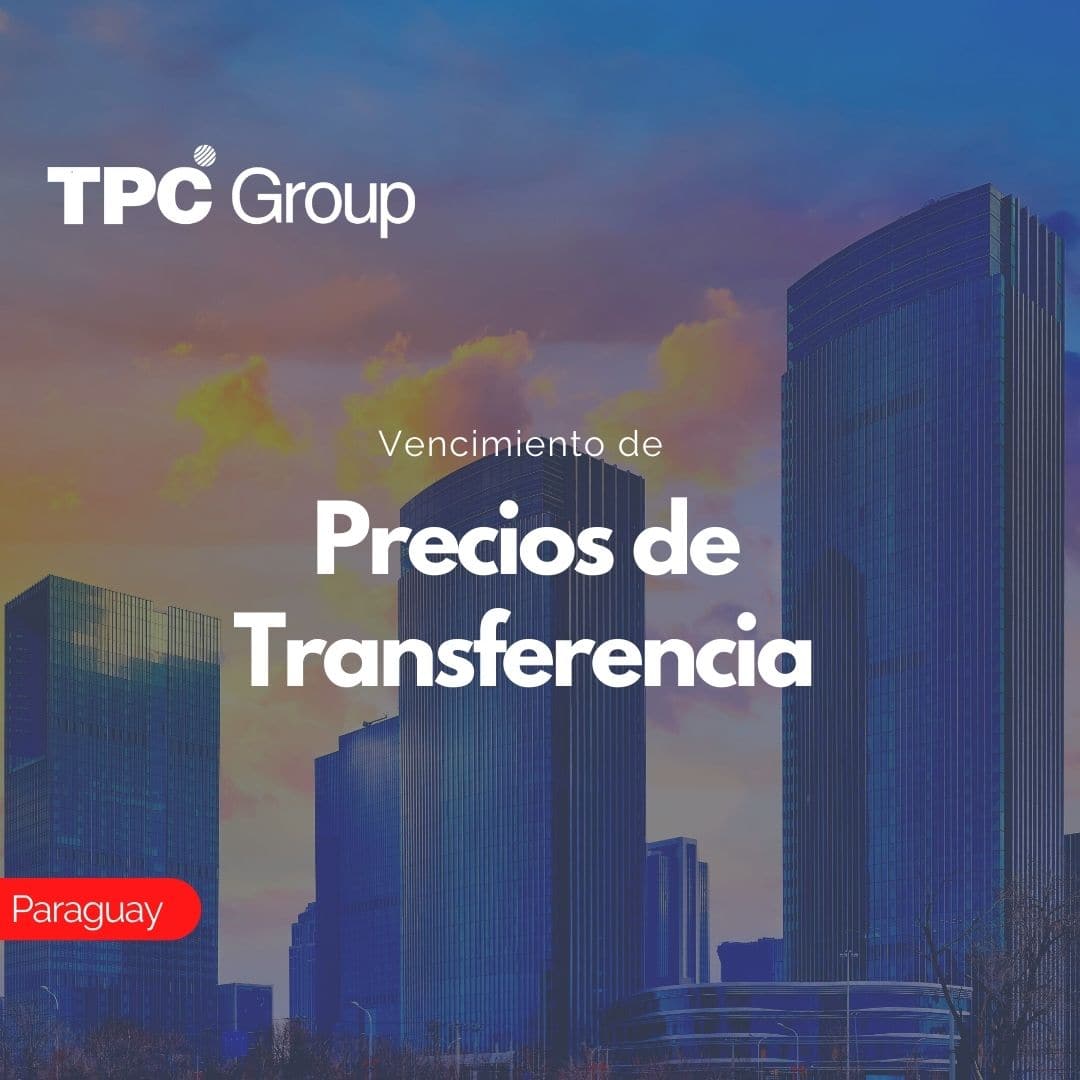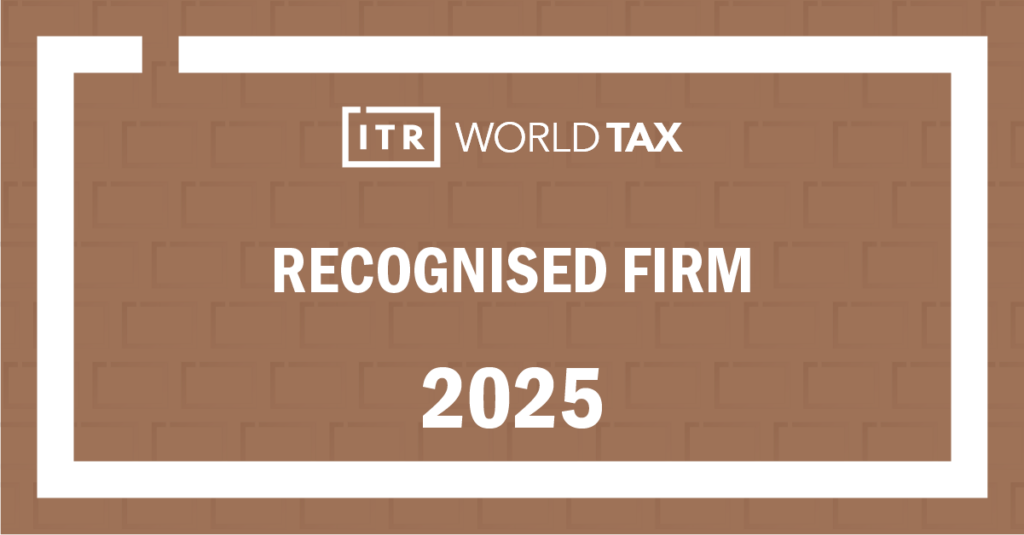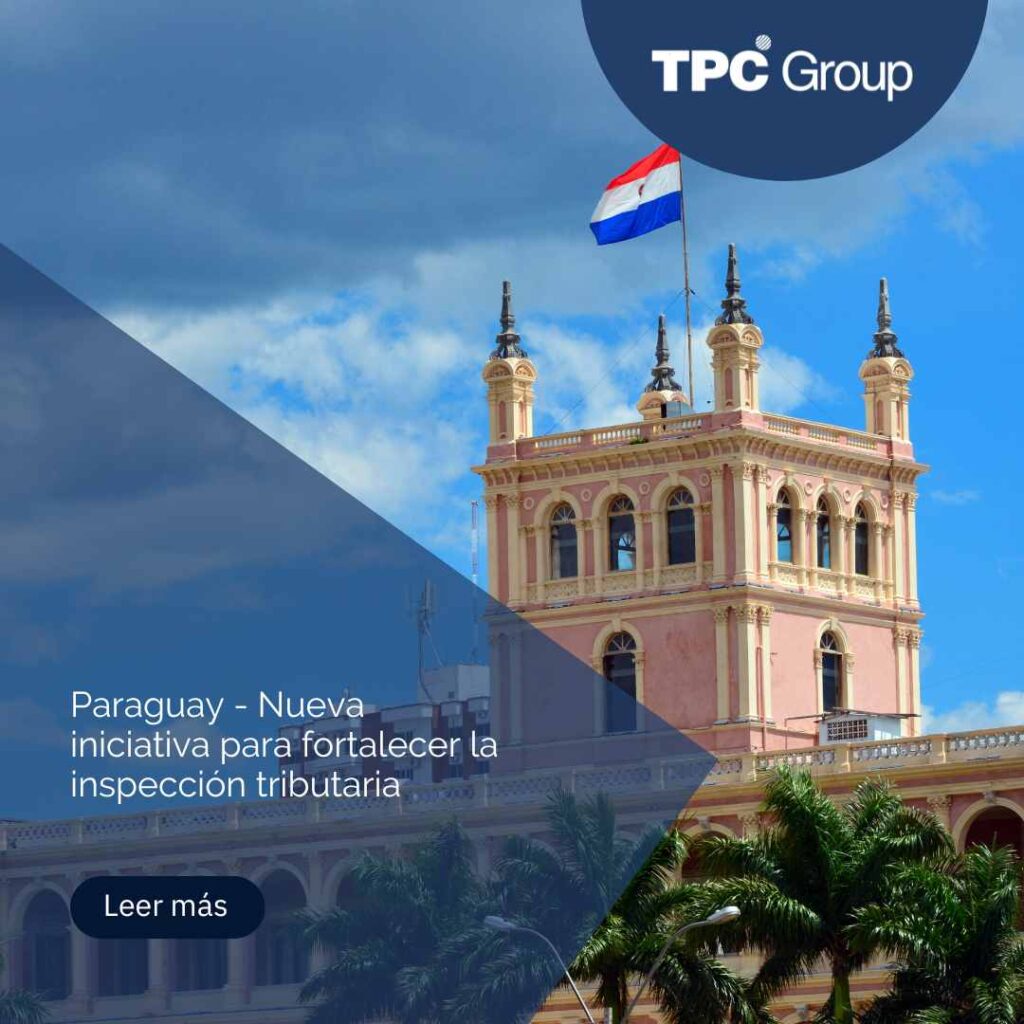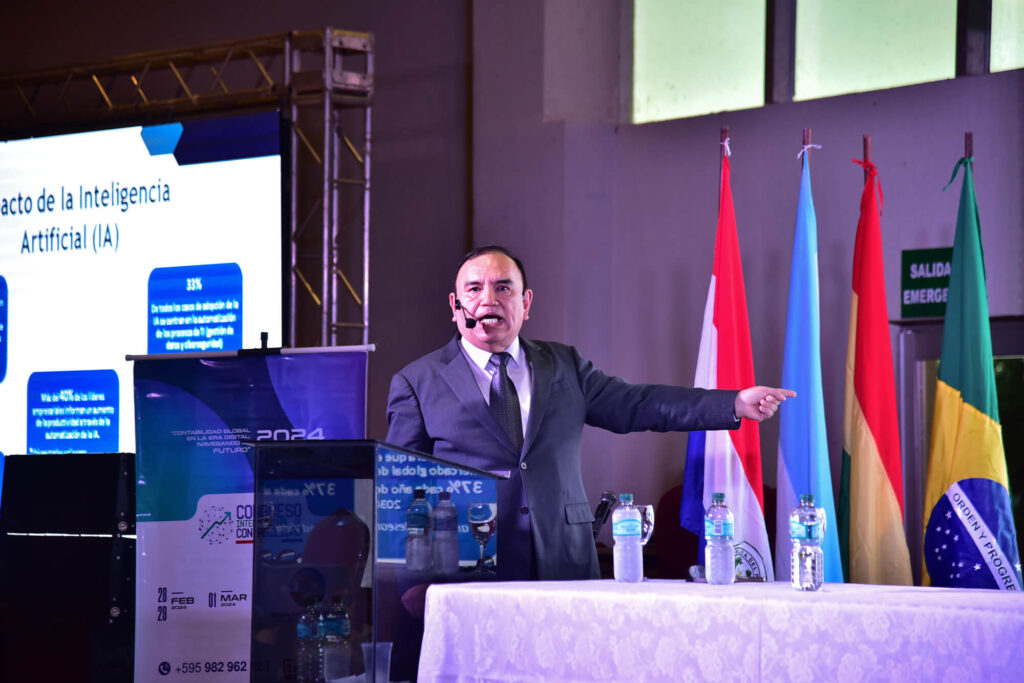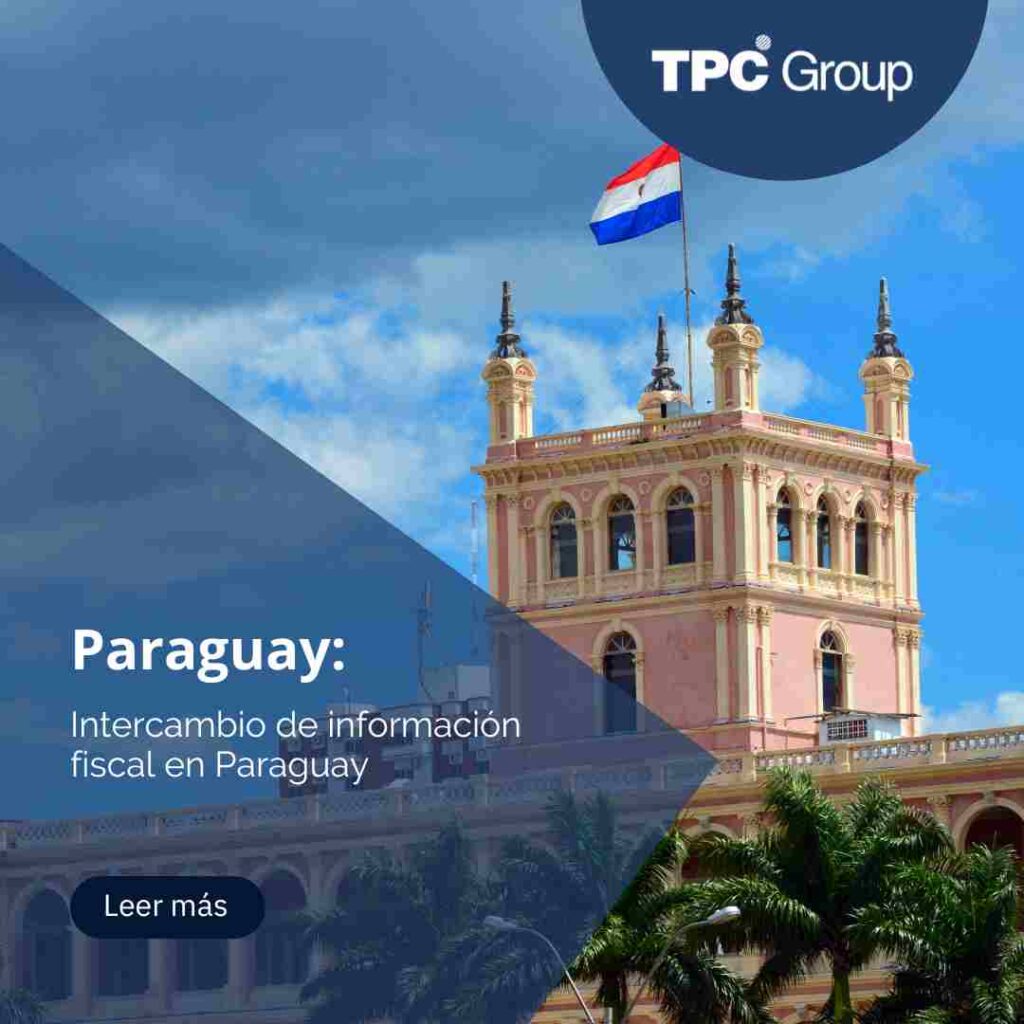Concepto y Regulación en Paraguay
Si bien Paraguay, desde el año 2017, es parte del Centro de Desarrollo de la Organización para la Cooperación y Desarrollo Económico (OCDE), lo cual pudo representar un posible avance a fin de plantear ciertas reformas tributarias en el país, no es sino hasta setiembre de 2019, que promulga una regulación especial para los Precios de Transferencia.
Mediante la Ley 6380 de «Modernización y Simplificación del Sistema Tributario Nacional» (Ley), se introduce una reforma tributaria, la cual contempla entre otras disposiciones, ciertas normas especiales de valoración para operaciones realizadas entre partes vinculadas.
Dichas normas se pueden encontrar en el Capítulo III de la Ley, el cual consta de 5 artículos, los cuales definen y regulan el principio de independencia, los criterios de comparabilidad, las partes vinculadas, los métodos de valoración y el estudio técnico.
La norma señalada entró en vigor a partir del 1 de enero de 2021, acorde a lo señalado en el Decreto N°2787/19, promulgado el 31 de octubre del 2019.
Asimismo, el 30 de diciembre del 2020, se promulgó el Reglamento del Capítulo III «Normas Especiales de Valoración de Operaciones» mediante el Decreto N°4644, el cual a su vez regirá para las operaciones realizadas a partir del 1 de enero de 2021, de conformidad con los métodos establecidos en los numerales 1) al 6) del artículo 38 de la Ley. Por otro lado, para la exportación de los bienes de conformidad con lo establecido en el numeral 7) regirá partir del 1 de julio de 2021.
Principio de Independencia: Definición
El Principio de Independencia o también conocido como «Principio de Arm’s Length» busca que los precios establecidos entre partes vinculadas estén acorde a precios objetivos de mercado, tal y como si se hubiesen pactado entre partes independientes en operaciones comparables.
La Ley ha adoptado dicha definición en su Artículo 35, de tal manera que los contribuyentes del Impuesto a la Renta Empresarial (IRE) deberán tenerlo en consideración al momento de pactar precios con sus partes relacionadas.
Ámbito de Aplicación de los Precios de Transferencia en Paraguay
De acuerdo al Artículo 3 del Reglamento de la Ley promulgado en el Decreto N° 4644, se encontrarán en el ámbito de las normas de precios de transferencia en Paraguay, los contribuyentes domiciliados en dicho país que realicen las siguientes operaciones:
- Operaciones con partes relacionadas residentes en el extranjero o en el país, en este último caso si las operaciones resultan para una de las dos partes como exonerada o exenta por el Impuesto a la Renta Empresarial.
- Operaciones con sujetos residentes en países o jurisdicciones de baja o nula tributación o relacionados con zonas francas.
Definición de Parte Vinculada en Paraguay
De acuerdo al Artículo 37 de la Ley, se considera que dos o más personas son partes vinculadas o relacionadas, cuando una persona o grupo de personas participa de manera directa o indirecta en:
- La administración o control de la otra, esto es cuando una empresa tiene la capacidad influir sobre las decisiones comerciales de otra.
- El capital, siempre que se posea más del 50% del capital social de la otra.
Cabe señalar que el término persona incluye a las físicas, jurídicas, establecimientos permanentes y fideicomisos nacionales o extranjeros.
Asimismo, se debe mencionar que también se considerará que son partes relacionadas de un residente en Paraguay, a aquellos sujetos residentes ubicados en jurisdicciones de baja o nula tributación, incluidas zonas francas y empresas maquiladoras.
Definición de Países o Jurisdicciones de Baja o Nula Imposición
Acorde al Artículo 5 del Reglamento de la Ley, se considerará como país o jurisdicción de baja o nula imposición cuando se cumplan con dos o más de las siguientes condiciones:
- Estén considerados dentro de un listado de países o jurisdicciones no cooperantes de organismos como, OCDE, La Unión Europea, la Red para la Justicia Fiscal entre otros, siempre que no hayan cumplido con la revisión de pares del Foro de OCDE.
- Se sometan a imposición actividades a una tributación efectiva o a una tasa de impuesto a la renta inferior a la tasa que se aplicaría en Paraguay.
- No se tenga vigente un convenio bilateral o multilateral de intercambio de información o haya conductas que limiten el intercambio.
Métodos de Valoración en Paraguay
El Artículo 38 de la Ley estipula 7 metodologías de precios de transferencia acorde a los lineamientos señalados por la OCDE, en sus Directrices de Precios de Transferencia, los cuales se listan a continuación:
- Método de Precio Comparable no Controlado.
- Método de Precios de Reventa.
- Método de Costo Adicionado.
- Método de Partición de Utilidades.
- Método Residual de Participación de Utilidades.
- Método de Márgenes Transaccionales de Utilidad de Operación.
- Método para Bienes de Cotización Internacional.
Asimismo, siguiendo los lineamientos antes indicados, la norma paraguaya en precios de transferencia señala un orden de prelación para la utilización de dichas metodologías.
De esta manera, a excepción de los bienes con cotización internacional, los cuales deben ser analizados bajo la metodología del numeral 7. Para las demás operaciones, se deberá utilizar en primer término el método señalado en el numeral 1.
Criterios de Comparabilidad en Paraguay
Acorde al Artículo 36 de la Ley y tomando en cuenta lo indicado en el Artículo 10 del Reglamento, a fin de realizar el análisis de comparabilidad entre transacciones se deberá tener en consideración lo siguiente:
- Los términos contractuales que puedan llegar a influir en el precio o en el margen involucrado
- Las funciones o actividades
- Las características de los bienes o servicios
- Las circunstancias económicas.
- Las estrategias de negocios.
- Cualquier otra circunstancia que sea relevante de la que el contribuyente podría haber tenido acceso a información de manera razonable, incluye aspectos como pérdidas económicas, efectos de decisiones gubernamentales, ventajas de ubicación, la existencia de equipos colaborativos o la generación de sinergias.
Obligaciones Formales en Precios de Transferencia en Paraguay
El Artículo 39 de la Ley 6380, así como el Artículo 27 del Reglamento, han señalado que los contribuyentes que realicen transacciones entre partes relacionadas deberán obtener y conservar un Estudio Técnico.
En este, se deberá incluir la documentación comprobatoria con la que demuestran que el monto de sus ingresos y deducciones están acorde al principio de independencia.
Con fecha 07 de abril de 2022, la Subsecretaría de Estado de Tributación (SET) emitió la Resolución General N° 115/2022, por la cual se reglamenta el Estudio Técnico de Precios de Transferencia (ETPT) respecto a la forma, plazos y condiciones para su presentación.
-
Obligados a contar con el Estudio Técnico
Se encuentran obligados aquellos contribuyentes que celebren operaciones con partes vinculadas residentes en el extranjero, o en Paraguay, cuando la operación para una de las partes esté exonerada, exenta o no alcanzada por el IRE, y cuyos ingresos brutos en el ejercicio inmediato anterior hayan excedido de G.10.000.000.000 (Diez mil millones de guaraníes).
En caso se haya realizado transacciones con partes domiciliadas en jurisdicciones consideradas de baja o nula tributación, o con usuarios de zonas francas o empresas maquiladoras, aún si no sobrepasa dicho umbral, los contribuyentes quedan obligados.
-
Exonerados a contar con el Estudio Técnico
Se encuentran exonerados de la obligación de contar con el Estudio Técnico de precios de transferencia los contribuyentes que liquiden el IRE bajo el Régimen Simplificado para Medianas Empresas (SIMPLE) o el Régimen Simplificado para Pequeñas Empresas (RESIMPLE).
-
Contenido mínimo del Estudio Técnico
El Estudio Técnico deberá contar con al menos los siguientes datos:
- Ejercicio fiscal que corresponde al Estudio Técnico.
- Nombre, denominación o razón social, domicilio y residencia fiscal, de las empresas del Grupo que realicen transacciones intercompañía.
- Descripción de los antecedentes del grupo nacional o multinacional.
- Descripción de los antecedentes de la entidad local.
- Información relativa a las operaciones con partes relacionadas y montos.
- Análisis y selección de la parte analizada (entidad local o entidad del exterior). Información de las funciones, activos y riesgos.
- Descripción de los términos contractuales.
- Características de las operaciones con partes vinculadas.
- Circunstancias económicas de las operaciones.
- Estrategias mercantiles o de negocios de las transacciones de la entidad analizada (local o del exterior).
- Detalle de los hechos valorados, documentaciones y otros tomados en cuenta para el Estudio Técnico.
- Detalle y cuantificación de las operaciones dentro del régimen de Normas Especiales de Valoración de Operaciones.
- Método utilizado, incluyendo operaciones y empresas comparables e indicador de rentabilidad aplicable a dicho método.
- Ajustes efectuados para mejorar la comparabilidad y su cuantificación y metodología.
- Identificación de las fuentes de información de las cuales se obtuvieron las comparables.
- Detalle de las comparables descartadas con el motivo.
- La determinación de la mediana y el rango intercuartil.
- Detalle de la información financiera utilizada para el análisis e identificación de la fuente de información.
- La conclusión del análisis por cada método de valoración aplicada.
- Otra información adicional, incluidos anexos.
-
Fecha de prestación del Estudio Técnico
De acuerdo al Artículo 7 de la Resolución N° 115/2022, el Estudio Técnico debe ser presentado en formato de documento portátil (PDF) y los papeles de trabajo deberán presentarse en formato de planilla electrónica.
Los sujetos obligados tendrán que presentar su Estudio Técnico anualmente, juntos a los papeles de trabajo que lo respaldan a través del Sistema «Marangatu«, con su clave de acceso de usuario conforme a los siguientes plazos:
| Cierre del ejercicio fiscal del sujeto obligado | Mes de presentación |
| 31 de diciembre | Julio del siguiente ejercicio fiscal que se declara |
| 30 de abril | Noviembre del ejercicio fiscal que se declara |
| 30 de junio | Enero del siguiente ejercicio fiscal que se declara |
Actualmente y luego de la vigencia de la Resolución, los sujetos obligados deben presentar el Estudio Técnico conforme al calendario de vencimientos de DJI establecido en la Resolución General N° 38/2020, según lo siguiente:
| Último número del RUC (Sin considerar el dígito verificador) | Día de vencimiento (fecha fija de cada mes) |
| 0 | 8 |
| 1 | 10 |
| 2 | 12 |
| 3 | 14 |
| 4 | 16 |
| 5 | 18 |
| 6 | 20 |
| 7 | 22 |
| 8 | 24 |
| 9 | 26 |
Para aquellos contribuyentes que requieren probar la no vinculación entre él y la parte residente en el extranjero, cuando esta se encuentre en un país de baja o nula tributación, o sea usuaria de zona franca o empresa maquiladora, el contribuyente deberá realizar una comunicación, adjuntado una serie de documentos, establecidos en el Art. 4 de la Resolución General N° 96/2021, en los siguientes plazos:
| Cierre del ejercicio fiscal del contribuyente del IRE | Mes de presentación |
| 31 de diciembre | Marzo del siguiente ejercicio fiscal que se declara |
| 30 de abril | Julio del ejercicio fiscal que se declara |
| 30 de junio | Setiembre del ejercicio fiscal que se declara |
En el Artículo 2 de la Resolución General N°134/2023, de forma excepcional, los documentos probatorios que desvirtúen la vinculación presuntiva con residentes del extranjero, correspondientes a las operaciones realizadas en los ejercicios fiscales 2022 y 2023, por los contribuyentes que cuenten con cierre del ejercicio fiscal al 31/12/2022, 30/04/2023 y 30/06/2023, deberán ser presentados ante la Mesa de Entrada de la SET en formato de documento portátil (PDF), según lo establecido en el Artículo 12 de la Resolución, en las fechas siguientes:
| Cierre del ejercicio fiscal del contribuyente del IRE | Mes de presentación |
| 31 de diciembre | Marzo del siguiente ejercicio fiscal que se declara |
| 30 de abril | Julio del ejercicio fiscal que se declara |
| 30 de junio | Setiembre del ejercicio fiscal que se declara |
Facultad de Comprobación del SET
El penúltimo párrafo del Artículo 39 de la Ley señala que el ejercicio de la facultad de comprobación respecto al Estudio Técnico solo se podrá realizar por ejercicio terminado.
Teniendo en consideración que las normas de precios de transferencia entrarán en vigor el 1 de enero de 2021, la Subsecretaría de Estado y Tributación (SET) sólo tendrá la posibilidad de realizar dicha comprobación a partir del 1 de enero del 2022.
Sanciones ante el incumplimiento de presentación del Estudio Técnico
La falta de cumplimiento de las obligaciones formales vinculadas a la presentación del Estudio Técnico de Precios de Transferencia, informes adicionales y la Declaración Jurada Informativa-Num 7, que se considera una infracción según el artículo 176 de la Ley N° 125/1991, resultará en la imposición de una multa de acuerdo con lo especificado a continuación:
| Incumplimiento | Importe de la multa |
| Presentación fuera del plazo de vencimiento de los documentos probatorios que desvirtúen la vinculación presunta con residentes del extranjero. | G. 900.000. |
| Presentación de la DJI-Num7 fuera del plazo de vencimiento. | G. 900.000. |
| Estudio técnico con datos inexactos. | Multa máxima establecida por el Poder Ejecutivo para las contravenciones, vigente al vencimiento del plazo de presentación. |
| Presentación del Estudio Técnico de Precios de Transferencia fuera del plazo de vencimiento. | |
| No conservación por el plazo de prescripción de los documentos comprobatorios que justifican las informaciones señaladas en el Estudio Técnico de Precios de Transferencia e informes adicionales |


